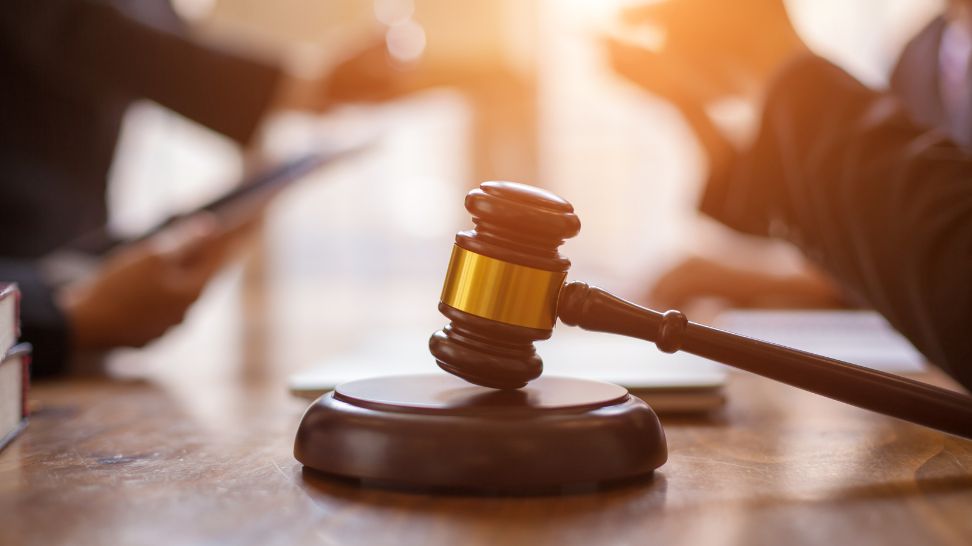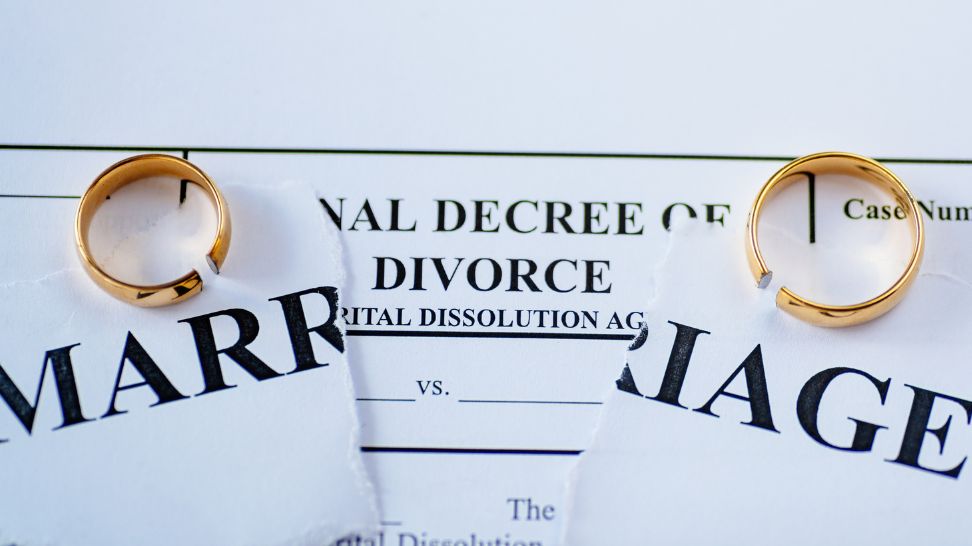No matter what your net worth is, work to protect it. More specifically, protect your assets in case of a lawsuit.
What assets can be taken in a lawsuit filed against you? Make sure you can answer this question to avoid having to part ways with assets following a legal battle.
Let’s take a look at which of your assets you could lose and then discuss what you can do to secure asset protection.
Assets That Can Be Seized & Protected Depending On The Case
An asset is anything of value you own that can provide you with financial benefits in the future. Some obvious examples are stocks and bonds in retirement accounts and, of course, cash.
Other examples of assets include:
- Houses
- Cryptocurrency
- Land
- Other real estate
- Vehicles
- Jewelry
- Gold and silver
- Artwork
- Collectibles
Think about the items you might bring up when speaking to a financial advisor about a retirement plan. These are the tangible items you can classify as assets.
What assets can be taken in a lawsuit? It all depends on the type of case filed against you. Here is a brief breakdown of different types of lawsuit cases along with the assets that can be seized and protected during them.
Debt Collection & Civil Lawsuits
A 2024 survey found that about two-thirds of Americans have debt. They owe almost $23,000 to creditors on average, with much of this debt stemming from credit cards, auto loans, mortgages, and student loans.
Many people pay off their debt over time without debt collectors stepping in. But some Americans fall so far behind on debt payments that creditors have no choice but to file lawsuits.
Some Americans also find themselves in the middle of civil lawsuits involving issues like contract and property disputes. These people sometimes put their assets at risk by not protecting them enough through asset protection or the formation of a limited partnership.
Here is what can be seized, and what can be protected, during debt collection and civil lawsuits.
Can Be Seized
If a creditor files a lawsuit against you and wins a judgment, they can seize quite a few assets. They can garnish your wages, levy your bank account, and even go after your personal property. This includes everything from cars and furniture to clothing and household goods.
Can Be Protected
Although a creditor can seize many assets after earning a judgment, some assets are protected by law. For instance, the homestead exemption in your state could help you hang on to your home. Any Social Security or disability benefits you collect should also be protected.
Additionally, a creditor can’t garnish all your wages. They can only garnish a percentage of them to ensure you can still afford essentials.
Divorce Cases
The divorce rate in the U.S. has dropped to a record low. It stands at around 2.4 per 1,000 people. But that doesn’t mean there aren’t still thousands of couples divorcing each year.
The U.S. Census Bureau reports almost 675,000 couples divorce annually. If you’re married, know how to answer the question, “What assets can be taken in a lawsuit?” Here is what can be seized and what can be protected during divorce cases.
Can Be Seized
Many assets are left unprotected during divorce cases. While these assets aren’t usually seized outright, they’re divisible within the context of a divorce and split up.
Some of these assets include:
- Real estate
- Bank accounts
- Cryptocurrency
- Retirement accounts
- Personal property
- Business interests
As you can see, these are some of your valuable assets. Figure out ways to protect them during divorce proceedings.
Can Be Protected
Very few assets can be protected during a divorce, but there are a few you should keep on your radar. For example, Social Security benefits are protected by law during divorce cases. Educational degrees are also protected in many states. Any property owned by your children should gain protection as well.
Additionally, anything you specified in a legally binding prenuptial agreement should be safe.
However, assets can be protected from divorce if proper planning is done in advance.
Bankruptcy Cases
The Administrative Office of the U.S. Courts revealed over 450,000 Americans declared bankruptcy in 2023. Many put their assets at risk by not considering the question, “What assets can be taken in a lawsuit?”
The assets that can be seized during a bankruptcy case depend on whether you file Chapter 7 or Chapter 13 bankruptcy. Educate yourself on the difference to know what assets can be seized and what assets can be protected.
Can Be Seized
After you file Chapter 7 bankruptcy, any creditors you owe money to can begin seizing a variety of assets, including:
- Real estate
- Land
- Vehicles
- Savings accounts
- Cryptocurrency
- Collectibles
After you file Chapter 13 bankruptcy, you can keep some of your assets, provided you agree to a repayment plan with your creditors.
Can Be Protected
By filing Chapter 13 bankruptcy, you can protect some assets. But when you file Chapter 7 bankruptcy, you can only protect certain assets, such as your primary residence and a percentage of your:
- Jewelry
- Work tools
- Household goods
- Health aids
- Life insurance
Civil Asset Forfeiture
The FBI reports more than 1.2 million violent crimes and over 6.5 million property crimes are committed each year. If police suspect your assets may have been obtained unlawfully, civil asset forfeiture laws could leave them subject to seizure.
Understand which assets authorities can and cannot take during civil asset forfeiture.
Can Be Seized
Police often go after any money you may have obtained through criminal activities during civil asset forfeitures. They can also seize any goods they believe were secured with so-called “dirty” money.
Can Be Protected
Civil asset forfeitures are extremely controversial because it’s difficult to tell which assets you can protect. Current laws allow police to seize many assets, even if they don’t have proof you committed a crime.
Tax Evasion Cases
The IRS Criminal Investigation identified more than 2,500 potential tax evasion cases in 2023 and successfully convicted those involved in over 88% of them. If you ever run into issues with the IRS, you’ll find yourself in a tough spot. The IRS can seize almost any assets if you’re found guilty of tax evasion.
Can Be Seized
Some assets the IRS can seize during tax evasion cases include:
- Wages
- Bank accounts
- Social Security benefits
- Real estate
- Vehicles
- Retirement income
Can Be Protected
While there aren’t many assets you can protect during a tax evasion case, there are a few you should be aware of, including:
- Clothing and furniture that aren’t worth more than a certain amount of money
- Books you need to further your education
- Work tools
- Personal items that aren’t too valuable
- A percentage of Social Security benefits
Personal Injury Cases
Hundreds of thousands of personal injury cases are filed every year in the U.S. If you don’t defend yourself in court effectively during one of these cases, it could lead to you losing many assets, including those you might think are untouchable.
Can Be Seized
What assets can be taken in a lawsuit involving a personal injury case? A few examples are:
- Money in bank accounts
- Cryptocurrency
- Real estate
- Vehicles
- Jewelry
Can Be Protected
While a personal injury lawsuit can leave you vulnerable to asset seizures, rest assured knowing at least some items should be off-limits to anyone suing you. They include:
- Your primary residence in a few states
- Retirement accounts
- Social Security benefits
- Veterans Administration benefits
Your spouse’s assets will also usually be protected during personal injury cases.
The Importance of Establishing Asset Protection
After discovering all the answers to the question, “What assets can be taken in a lawsuit?”, are you suddenly scared about what might happen if you find yourself on the wrong end of a case? Don’t stress yourself out too much about it. But at the same time, understand that some reports suggest about one-third of Americans will face lawsuits in their lifetimes.
Asset protection can protect you and your assets in the event of a lawsuit. It’s worth exploring the benefits of working with an asset protection attorney.
Attorney Blake Harris can help you set up a Cook Islands Trust, which is a trust that can deliver all the protection you’ll need for assets if you’re ever faced with a debt collection case, a civil lawsuit, a divorce, a bankruptcy case, a civil asset forfeiture, or another case that can compromise your assets. Even U.S. courts shouldn’t have the chance to touch your assets when you put a trust like this in place.
Contact Us for Your Asset Protection Needs
Do you have enough protection for your assets? If not, you could lose them if you’re ever sued.
Blake Harris Law can talk to you more about the answers to the question, “What assets can be taken in a lawsuit?” and explain how asset protection can help. Touch base with us today!





